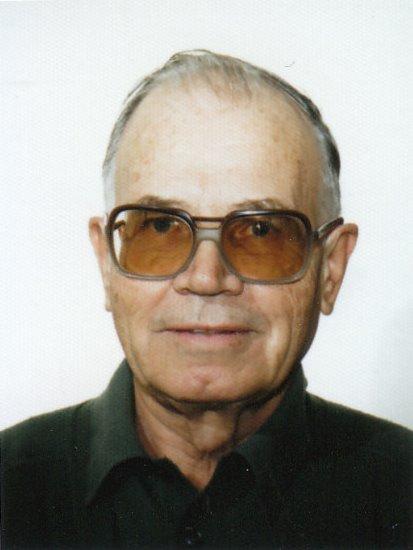Daniel Comboni
Misjonarze Kombonianie
Obszar instytucjonalny
Inne linki
Newsletter
In Pace Christi
Fortuna Girolamo
Born at Castelgomberto (Vicenza) on 6 August 1928, Girolamo entered the Venegono novitiate, having decided to become a Brother. He took first vows on 19 March, 1950, at Gozzano and, in 1952, after two years’ service at Troia; he left for Khartoum where he worked at the technical school, especially in the carpentry. Assigned to El Obeid in 1955, he worked also in construction. After a short period of holidays in Italy, he returned to El Obeid (1958) where he worked at Comboni School and, from 1966 to 1986, at the bishop’s house. In 1986 he moved to Kadugli, then to Nyala and then to Khartoum North. In 2009 he returned to Verona for treatment. In 2010, he was transferred to Arco and later to Verona. Lastly, he moved to Castel d’Azzano where he died on 5 July, 2017.
Bro. Agostino Cerri recalls: “I met Bro. Girolamo Fortuna, or “Momi”, as he was called, for the first time in September of 1982, at the mission of Dilling, a few months after I arrived in El Obeid. My memory of this friend and confrere is tied up with the construction work he carried out in the diocese of El Obeid. The missions of Dilling, Kadugli, El Fasher and Nyala witnessed his precise, simple and economic work. He had a group of workers who were very fond of him as had great respect and esteem for him. Bro. Momi loved his work and community life. Nothing pleased him more than a game of cards after supper while he discussed his concerns, the work done during the day and that of the next day with his confreres. He was a capable administrator of money and always knew exactly what was needed for any given project such as a church or a house. His constructions are still a credit to him in Kordofan. The church of Dilling, that of Kosti and many other buildings are still standing, even though the ground may have subsided causing cracks to appear. In those well-ventilated and light-filled churches, the people gather every Sunday dressed in their best clothes to pray and praise God. He must be very happy with that.
Very often, during the hot Sudanese afternoons, I saw Bro. Momi wetting down the cement work of a building with his usual straw hat on his head and his Rosary beads in his hand, as if to show me how prayer is not to be separated from the work of every day. Later, we went our separate ways: old age with its ailments forced him to stay at the house in Bahri, on the bank of the Blue Nile. The land there was the plot which good Fr. Pigarella, with great patience and unending effort, had succeeded in having returned to the mission by the illegitimate dwellers. That land was transformed by Bro. Momi into a verdant garden. In his expert and industrious hands everything grew, to the joy of many confreres and religious Sisters who visited Bro. Momi’s garden every Friday morning. Besides distributing vegetables, he would enquire about the work and health of the confreres and the activities of the schools in Khartoum, to share the joys and sorrows of the Mission.
Here in El Obeid where I am now living, his workers are still around, though already grandfathers, both Christians and Moslems. It was Bro. Momi who taught them the skills to earn their living, rear a family and live a dignified life”.
Another confrere who knew him in El Obeid was Fr. Carmine Calvisi. “He came to Sudan as a carpenter and learned how to build from Bro. Pietro Laffranchi. When the latter fell ill and died, the confreres who were building the cathedral met to see who could take charge of the work and complete it. They chose Bro. Momi who accepted on condition that everyone would collaborate if difficulties arose. I do not remember how many Brothers worked on the cathedral but I do remember that every Sunday at supper we were quite a few. That was how the cathedral of El Obeid, a beautiful building, big, strong and with excellent acoustics, was completed.
Bro. Momi with his team of workers was also given the task of building the mission of Kosti. Fr. Pietro Coronella had bought 5,400m2 of land with planning permission to build a house for the fathers, one for the Sisters and a church. The foundation stone was laid by Mgr. Calabresi, the Nuncio, on 22 April 1973. It was completed in a year and, on 28 April, 1974, Mons. Baroni consecrated the church. I had the part of the deacon during that ceremony. Bro. Momi was both swift and precise in his work, and was demanding with himself and with others”.
Da Mccj Bulletin n. 274 suppl. In Memoriam, gennaio 2018, p. 119-122.

